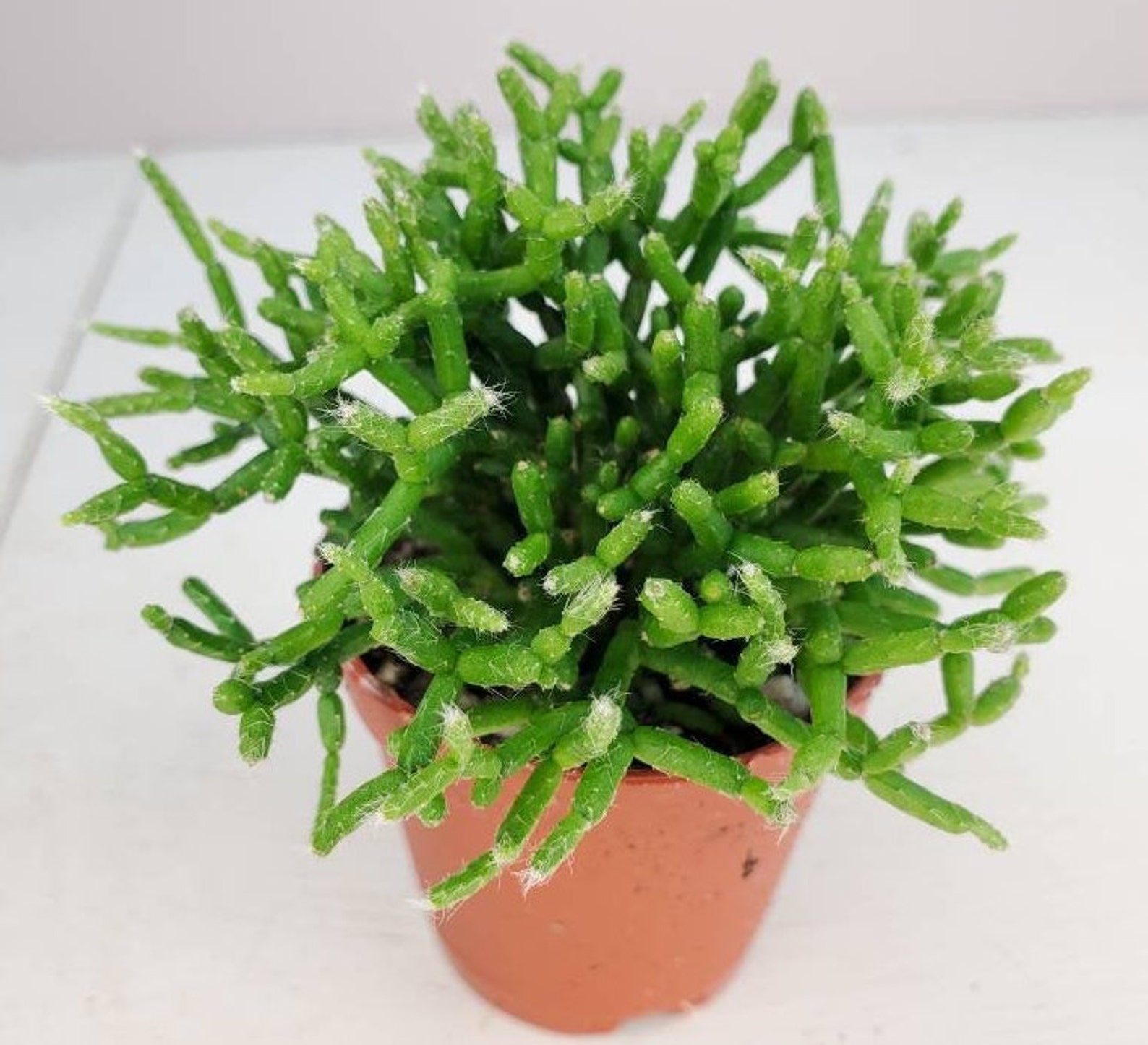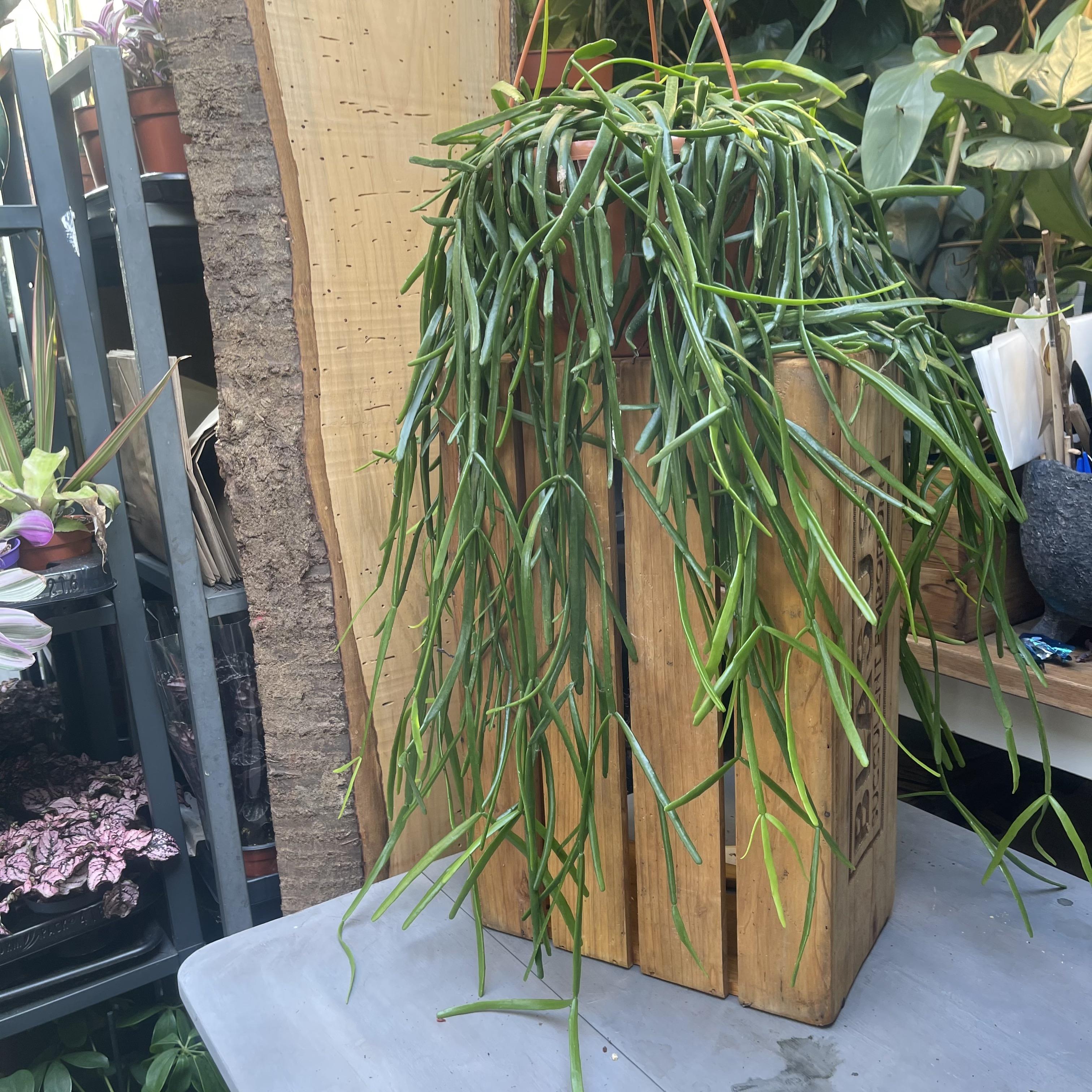Rhipsalis Plants For Sale – Those who are born into privilege have the means to buy their way to the top, while others are left behind, forced to sell their time, energy, and even their dignity in order to survive. Whether it’s the smooth finish of a well-polished wooden table or the satisfying feel of a perfectly balanced knife in your hand, quality goods evoke a sense of pride in their ownership. This has opened up new opportunities for small businesses to thrive and for consumers to access unique, well-made items that they might not have encountered otherwise. This connection between consumers and the creators of quality goods is something that’s been fostered for centuries. This shift in mindset has contributed to a growing acceptance and even celebration of second-hand shopping, making it a mainstream activity that is not just about saving money but about making more thoughtful and responsible choices. For the seller, there is the risk that they may not be able to find a buyer who is willing to pay the desired price, or that the sale may not go through as planned. When a car is put up for sale, it can feel like letting go of a part of one’s journey. Whether it’s funding education, supporting homelessness services, or providing medical assistance, the money spent in second-hand shops can contribute to making a difference in the lives of others. When a business is put up for sale, it is typically the result of a variety of reasons, each unique to the situation at hand. Entrepreneurs can launch businesses from their homes, and freelancers can offer their skills to clients across the world. The struggle is not in resisting the marketplace entirely, but in finding balance, in ensuring that the things that truly matter cannot be bought, sold, or traded. The second-hand market is not just about saving money; it’s about embracing a more sustainable, mindful way of consuming that values reuse, repurposing, and the stories behind the items we choose to keep. The idea that everything is for sale works to perpetuate inequality, as those with the most resources can continue to amass power and wealth, while others are left to scramble for what little they can get. Yet, despite this shift, the appeal of quality craftsmanship has not waned. They are investments, not just purchases, and their value is often felt long after the original transaction has ended. A blacksmith might craft a sword, a tailor might stitch a suit, and a potter might mold a vase. For those on a budget or looking to stretch their money further, second-hand markets provide an opportunity to purchase goods that would otherwise be out of reach. By purchasing second-hand items, consumers can help reduce the demand for new products, thereby lessening the environmental impact associated with manufacturing and shipping. A business for sale is not always as it appears on the surface, and the buyer must examine the company’s financial statements, contracts, debts, and even its customer relationships before deciding whether to proceed with the transaction. In the world of quality goods for sale, there is also an inherent sense of value in the stories behind them.

2 Rhipsalis Assorted Rhipsalis Succulent Mini Etsy
Personalized giftsindependent makerssecure shoppingeveryday supplies Gmo free · heirloom · drought tolerant

Rhipsalis Baccifera Oasis Mistletoe cactus
Gmo free · heirloom · drought tolerant Personalized giftsindependent makerssecure shoppingeveryday supplies

Rhipsalis Micrantha F. Tonduzii Potted Cactus Etsy
Gmo free · heirloom · drought tolerant Personalized giftsindependent makerssecure shoppingeveryday supplies

Rhipsalis baccifera Toh Garden Singapore Orchid Plant & Flower Grower
Gmo free · heirloom · drought tolerant Personalized giftsindependent makerssecure shoppingeveryday supplies

Rhipsalis Succulents For Sale
Personalized giftsindependent makerssecure shoppingeveryday supplies Gmo free · heirloom · drought tolerant

Rhipsalis for sale Grow plants
Gmo free · heirloom · drought tolerant Personalized giftsindependent makerssecure shoppingeveryday supplies

Rhipsalis agudoensis Epiphyte Jungle cactus Tropical Plants For Sale
Gmo free · heirloom · drought tolerant Personalized giftsindependent makerssecure shoppingeveryday supplies

Rhipsalis salicornioides Succulents Australia Sales
Personalized giftsindependent makerssecure shoppingeveryday supplies Gmo free · heirloom · drought tolerant

Rhipsalis Baccifera Plant 20cml P13 Plants Alina Florist
Personalized giftsindependent makerssecure shoppingeveryday supplies Gmo free · heirloom · drought tolerant

Rhipsalis Trigona
Gmo free · heirloom · drought tolerant Personalized giftsindependent makerssecure shoppingeveryday supplies
In the age of immediacy, it can often feel as though many goods are made with built-in obsolescence, created to be replaced every few years. These platforms allow users to browse listings, communicate with sellers, and make purchases from the comfort of their own homes. People often feel like they are for sale, too, in various ways. This can be particularly advantageous for entrepreneurs who might have experience in business operations but lack the time or resources to build a new venture from the ground up. Additionally, brick-and-mortar thrift stores and consignment shops provide a more traditional avenue for selling second-hand goods. In a world where everything is for sale, it’s easy for the vulnerable and the marginalized to be taken advantage of. In conclusion, second-hand goods for sale represent more than just a financial transaction; they embody a shift toward sustainability, individuality, and social responsibility. With the rising costs of new products, especially in categories like electronics, clothing, and furniture, purchasing second-hand items can offer significant savings. The environmental benefits of buying second-hand goods go beyond just reducing the need for new production. Beyond financial savings and environmental impact, second-hand goods also offer a sense of nostalgia and connection to the past. The marketplace, for all its flaws, has brought about great innovations. With the rise of e-commerce, the accessibility of quality goods for sale has expanded exponentially. Additionally, purchasing second-hand electronics can be a way to access high-end models at a lower price. Whether it’s vintage clothing, antique furniture, or used luxury watches, second-hand goods offer an opportunity for buyers to find quality items that are no longer available in stores. It’s a world where even personal growth, self-actualization, and emotional healing are framed as commodities, available for purchase at any time, but only if you’re willing to pay the price. For example, someone might be able to purchase a used smartphone or laptop with the same features and specifications as a brand-new model, but at a significantly reduced price. For the buyer, acquiring such a piece may carry with it the honor of preserving a legacy, or the satisfaction of adding a unique, timeless item to their own collection. Whether it’s the sleek lines of a designer chair or the intricate patterns on a handwoven rug, quality goods are often as much about aesthetics as they are about functionality. For those who are passionate about antiques, art, and memorabilia, the second-hand market offers endless possibilities for finding unique and valuable items that can be passed down through generations or added to a collection. The practice of buying and selling second-hand items has been around for centuries, but in recent years, it has seen a resurgence.
It carries with it a deep sense of commodification — the idea that every part of our lives, every piece of our history, every corner of our existence, has a price attached to it. Used bookstores, both physical and online, offer an extensive selection of pre-owned books, from contemporary novels to classic literature. When we begin to view everything through the lens of commerce, it’s easy to lose sight of the things that make life worth living — the moments that aren’t for sale, the experiences that can’t be bought. Economic downturns, for example, can influence the types of businesses that are put up for sale, as struggling companies may look to exit the market. For those who are passionate about antiques, art, and memorabilia, the second-hand market offers endless possibilities for finding unique and valuable items that can be passed down through generations or added to a collection. Whether through thrift stores, flea markets, online platforms, or garage sales, second-hand goods provide consumers with an opportunity to find items they might not otherwise be able to afford, while also contributing to a circular economy where products are reused and repurposed. These platforms have also made it easier for individuals to sell their own pre-owned goods, turning unused or unwanted items into cash. Thrift stores often carry a wide variety of goods, from clothing and accessories to furniture, books, and electronics, and each item comes with its own story. This is especially true in a world dominated by fast fashion, disposable electronics, and mass-produced products. The process of selling it can be seen as a form of letting go, a recognition that the future may look different from the past, but that doesn’t diminish its importance or value. A home, a car, a piece of jewelry, a moment in time, a relationship — all of these things, at some point, become commodities. We start to treat people as commodities, too — as means to an end, as tools for achieving personal success or social status. They remind us that, despite living in a world where everything is for sale, there are some things that remain priceless. Although the transaction may be challenging at times, the opportunity to buy or sell a business can open doors to new ventures, provide financial rewards, and enable entrepreneurs to pursue their goals. The rise of online platforms has transformed the way second-hand goods are bought and sold. While the sale of a business can provide a valuable opportunity for both parties involved, it also carries risks. Whether you’re the seller or the buyer, the phrase “for sale” is a reminder that everything in life is in constant motion, always moving toward something new, something different, something better. For many, purchasing second-hand goods is not only a practical and affordable choice but also an environmentally conscious one. The market for second-hand goods is also influenced by societal trends and economic conditions. This is particularly evident in industries such as furniture, clothing, and electronics.